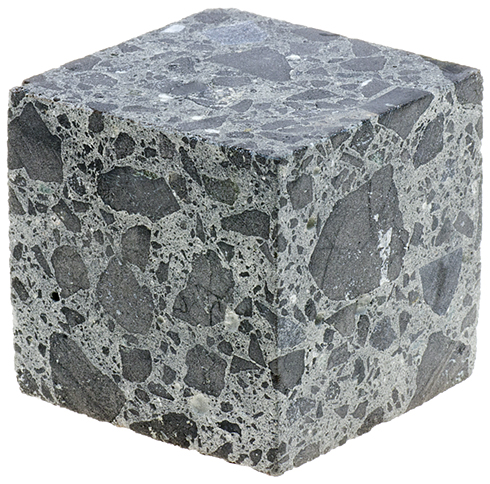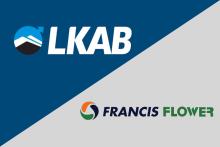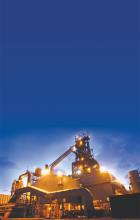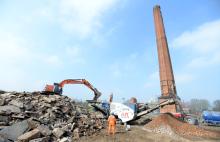
With its acquisition of UK industrial minerals company
LKAB Minerals, the industrial minerals division of Swedish state-owned iron ore mining group LKAB, says the acquisition (which is subject to regulatory clearance) will strengthen its position as a supplier of materials for the building and construction industry.
One of the main attractions of the Francis Flower business for LKAB Minerals is the environmentally friendly Ground Granulated Blast furnace Slag (GGBS) product. Since 2015 Francis Flower has been recycling blast furnace slag from the steel industry for the production of GGBS, a sustainable product that can replace 70% of Portland Cement in a concrete mix delivering reductions in CO2 emissions.
GGBS is used in the production of ready-mix and pre-cast concrete, cement-based formulations and soil stabilisation. Francis Flower claims that the manufacture of GGBS requires less than 20% of the energy and produces less than 10% of the CO2 emissions compared to Portland Cement production.
Another attractive part of the Francis Flower operation for LKAB was its limestone filler business, according to Darren Wilson, VP industrial minerals and CEO Europe at LKAB Minerals. "This blends and processes various by-products from the quarrying of limestone, that is then supplied into the asphalt industry," he said.
Around 89% of LKAB group business is based around the mining of iron ore in the north of Sweden, from where it produces 27 million tonnes a year. Industrial minerals is part of the remaining 11% of the business which also includes mining services, drilling technology and explosives.
LKAB Minerals’ main involvement in aggregates is through the use of magnetite iron oxide, which is used it its MagnaDense product. MagnaDense is an aggregate that can be used in a concrete mix in place of a normal aggregates, including sand and gravel. MagnaDense can produce concrete with a density of up to 4.1 t/m3 (compared with standard aggregates, producing concrete with a density of 2.3t/m3) which means thinner sections can be constructed. Its end uses include specialised applications such as radiation shielding within hospitals and nuclear power plants.
MagnaDense is also utilised in applications where additional density is required. One example is the Crossrail project in London and the South East, where it is being used in a Floating Track Slab, to overcome sound and vibration in a section of the tunnel network which passes beneath the Barbican Theatre. Additionally, the dense aggregate can be utilised in ground stabilisation applications to overcome hydrostatic pressure, as it is in a separate section of the Crossrail project which runs in close proximity to the river Thames.
“It’s a niche, specialised aggregate which provides a solution to civil engineering challenges,” says Wilson. “With the acquisition of Francis Flower and their established business within the construction industry, we hope to further promote and raise awareness of the benefits of MagnaDense.”
He adds that LKAB Minerals sees major opportunities to combine its sites with those of Francis Flower to achieve greater geographical coverage in the UK. Francis Flower is strong in the South West with a plant at Gurney Slade in Somerset in addition to locations in Cambridgeshire, Lincolnshire and Cheshire, while LKAB Minerals Ltd is based in Derby with plants in Stockton-on-Tees, Lund (Sweden) and Flixborough.
"Unless you are in the steel industry, not many people will have heard about LKAB," says Wilson. "Our ambition is to grow the industrial minerals part of the business which will give us diversification. In a world of growing demands and population, there will continue to be an obvious need for minerals of every type."
Describing the role of the specialist aggregates that LKAB Minerals produces in its operation, Wilson says it is "niche" and accounts for around 4% of its business.
It is important to stress that LKAB Minerals only plans to develop the specialist aggregate-based products that the combined LKAB Minerals/Francis Flower operation already provides.
"We have plans to make our Magnetite aggregate business stronger," he adds. "We are not coming in to disrupt the market, and don't have great ambitions to move into new markets such as granite or roadstone.”
Wilson says the market outlook for GGBS will probably be flat in 2019, due to delays in some major infrastructure projects, and the slight uncertainty in the South East England market linked to Brexit. However, he adds there are significant infrastructure projects going forward that will increase GGBS demand in the UK from 2020, including the HS2 and TransPennine upgrade rail projects, as well as the Hinkley Point C nuclear power station in Somerset.
The merger with Francis Flower is subject to clearance by Austrian regulators, where the LKAB group has submitted a competition filing. Wilson said the reason for this is that Austria has a lower threshold than other countries for requiring filings to be submitted. He added that it was hoped to gain clearance in the next four to six weeks and complete the merger before the end of the year.








